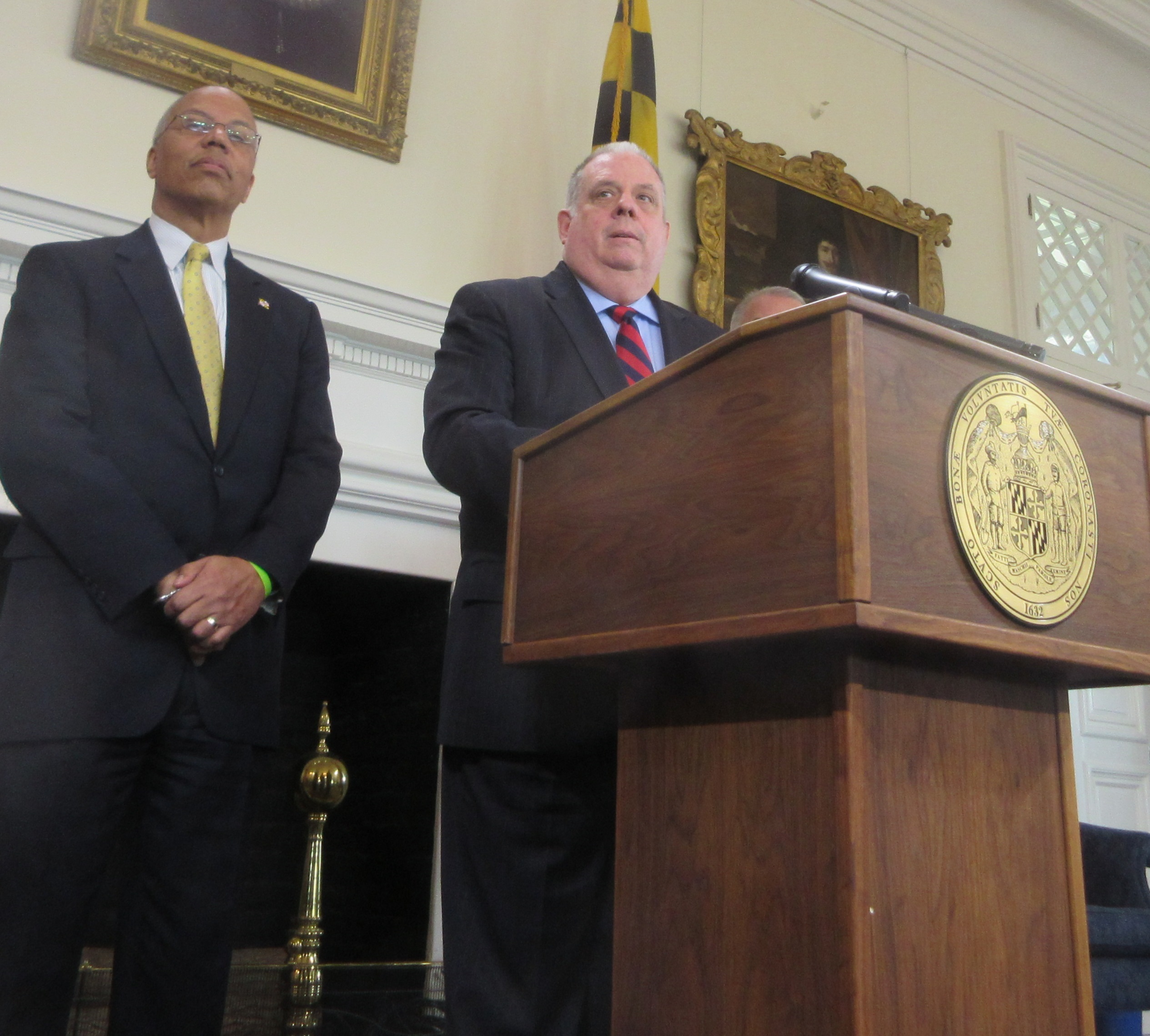By Jeremy Bauer-Wolf
Workers on many local school construction projects would be paid at a higher rate under a prevailing wage bill approved Tuesday by the Maryland Senate.
The bill would increase overall construction costs by as much as 5%, estimates the state Department of Legislative Services.
Republican legislators were critical of SB 232, sponsored by Baltimore County Democrat Norman Stone. The bill passed 32-15 and requires that local governments pay the prevailing wage if the state has contributed 25% of funding or more to a school construction project.
Any other public work project valued at $500,000 or higher will be built by workers paid at prevailing wage if the state has subsidized 50% of the project, which is current state law.
Prevailing wage intended to promote fair compensation
The measure, along with prevailing wage requirements as a whole, is pro-union and meant to ensure construction workers are paid adequately. The state Commissioner of Labor and Industry determines the fair prevailing wage.
The bill would likely only affect 10 of Maryland’s 23 counties — those with school boards which accept roughly 50% from the state to fund school construction projects. The Department of Legislative Services estimated that overall construction costs would rise as much as 5%.
The areas likely impacted would be Anne Arundel, Baltimore, Calvert, Carroll, Garrett, Kent, Montgomery, Queen Anne’s, Talbot and Worcester counties.
Republicans question higher project costs as result of bill
Republican Sens. Allan Kittleman of Howard County and Stephen Hershey Jr. of the Upper Shore were particularly critical of the legislation, citing high labor costs for prevailing wage workers.
Kittleman, a member of the Task Force to Study the Applicability of the Maryland
Prevailing Wage Law, called it unfair that the local governments would need to scrape together money themselves to supplement the higher pay for the workers.
Kittleman’s task force has investigated the issue of prevailing wage laws for more than a year, but has yet to conclude whether projects associated with prevailing wages cost more in the long-term.
“By adopting this legislation, we’re going to make it harder for our local school systems to build more schools,” Kittleman said. “We’re going to make it harder to have better quality in those schools and I just think it doesn’t make sense to encourage our school systems to pay more.”
Hershey also raised concerns about the cost.
“I’ve been in construction management for many years,” Hershey said. “And with prevailing wage – union-rate jobs — they cost more up front.”
Varies by county
Prevailing wage rates vary by county and type of worker. For instance, an electrician in Montgomery County would be paid $40 an hour under prevailing wage, while in Carroll County an electrician is paid $35.10 an hour. All prevailing wage positions pertain to construction or other workers, such as bricklayers, painters or plumbers.
While legislators are considering raising the minimum wage for all workers to $10.10 an hour from $7.25, a common or unskilled construction laborer in Anne Arundel County would make $15.47 an hour according to prevailing wage state guidelines. In Frederick County, the same laborer might make $18.67 an hour, or $12.70 in Queen Anne’s County.
The bill supersedes local laws exempting certain projects from prevailing wages. In Montgomery County, for instance, the law states that school projects are exempted from prevailing wage requirements. But all counties would be subject to the stipulations of the bill, according to Sen. Thomas Mac Middleton, D-Charles County and chair of the prevailing wage task force.
All projects within the University System of Maryland and private nonprofit higher education institutions are also exempt from the bill.
Proponent argues prevailing wage would promote skilled workers
Middleton called on the legislature to look past the costs on paper.
“With prevailing wage, you get more skilled workers and if you don’t get skilled workers you get the job training component vs. the non prevailing wage where you just don’t have that. Besides the dollar value, you have to look at … the millions of dollars the state of Maryland has just dropped in job training,” Middleton said.
The House version of the bill, HB 727, passed 90-46 Monday, with some Democrats joining near unanimous opposition by Republicans in both chambers.







Higher wages do not necessarily lead to higher quality in construction.
Sen. Stone’s office responded to the article with the following:
Prevailing wages are determined by the prevailing wage (50%)
in a given area, for a given profession. All this bill does is prevent
government procurement funds for school construction to undercut local labor,
and in effect support out of state sub-contractors or workers, who don’t pay
state taxes.
Your article is a bit misleading, or maybe you just
neglected to mention the purpose for the bill in the first place. Also,
it would be helpful to note that Maryland is the only state in the country to
use a percentage trigger of state funds at all. A mention of Davis-Bacon
triggering at $2,000 projects with ANY federal funds would also have put some
perspective into the article.
In order to pay the “prevailing wage” aka the union-determined wage, school construction costs will be more expensive. Without this mandated “prevailing wage”, could the funds saved be used to build more schools in the long run?
The bill’s sponsor, Democrat Norman Stone, wants to enhance his stature with his union buddies who assist his re-elections by increasing the scope of government and its cost to taxpayers. Nothing really new here; sell the bill as a win-win while exploiting the situation for your own good.
I think Norman has already said he is not going to run for reelection.
Since the Takoma Park delegation runs the state, put a special tax on the town of Takoma Park to pay the increased 5% cost. We wouldn’t have a booming need to increase school construction if this TP delegation hadn’t made their town, then their county, then our state a sanctuary for illegals. So, let them pay for it.
If you were an electrician or carpenter, you’d think differently. Construction is very demanding both physically and mentally. Intuition and experience prevails in this world. Most trades who are non-union are severely underpaid for the amount of responsibility they have.